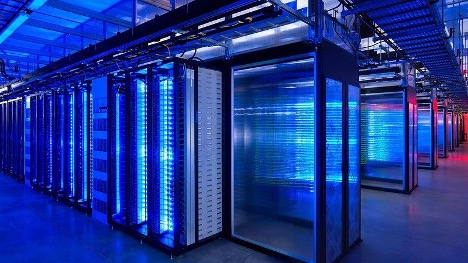Data centers have been behind one of the biggest news stories of the past few years in both tech and energy – and for energy consumers, it’s not all good news. A recent Harvard Law study found that rate contracts between data centers and utilities are often shifting costs onto regular electric customers, or in other words, “transferring Big Tech’s energy costs to the public.”
Now, the second-biggest utility in Michigan, Consumers Energy, is trying to prepare for data centers by filing for regulatory approval of a new version of its special tariff for large load customers. CUB and other groups are intervening in the case where the Michigan Public Service Commission is considering this tariff, Case U-21859.
With this tariff filing, Consumers is anticipating problems like data centers potentially shifting costs onto other customers or the issue of “stranded assets” – when the utility needs to build new infrastructure to support this new load, but the data centers either are not built to the extent anticipated or end up closing earlier than expected, leaving that infrastructure “stranded.” The tariff would have several requirements in place meant to protect customers, like a 15-year minimum contract term.
But CUB is intervening in the case due to concerns that the protections proposed by Consumers may not be enough. “Without additional and stronger tariff provisions… other customers may end up bearing substantial costs for the large amounts of potential data center load that Consumers is anticipating, especially if new generation resources are built or acquired and then data center load fails to materialize or the load is not in place for as long as expected,” a petition from CUB, the Michigan Environmental Council, the Natural Resources Defense Council and the Sierra Club said.
For example, it is highly likely Consumers Energy will propose to build new power plants to service new data center load. Power plants are typically assets that are depreciated over periods of 30 years or more – twice the length of the minimum contract term. That leaves open the possibility that if a data center closes at the end of the contract, other customers will end up having to pay for the remaining undepreciated value of the new power plants. According to Consumers, there are over 15 gigawatts of prospective data center load in its economic development pipeline, which is about twice as much load as Consumers’ current peak load of 7.6 gigawatts.
The MPSC accepted the arguments from CUB and the other groups that this case should be contested, meaning there will be evidence put forth by all the parties involved before the MPSC arrives at a decision. Hopefully that process will arrive at a tariff that avoids the cost-shifting issues that data centers have led to in other states, as chronicled in the Harvard Law study linked above.

